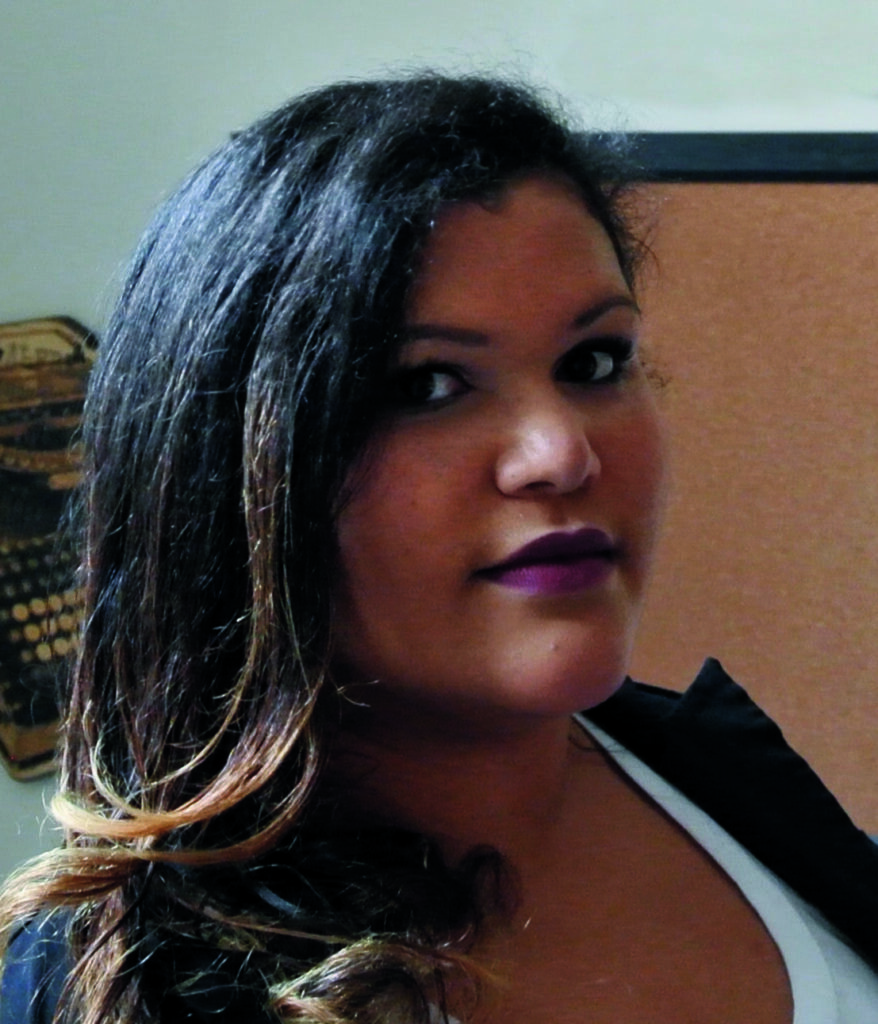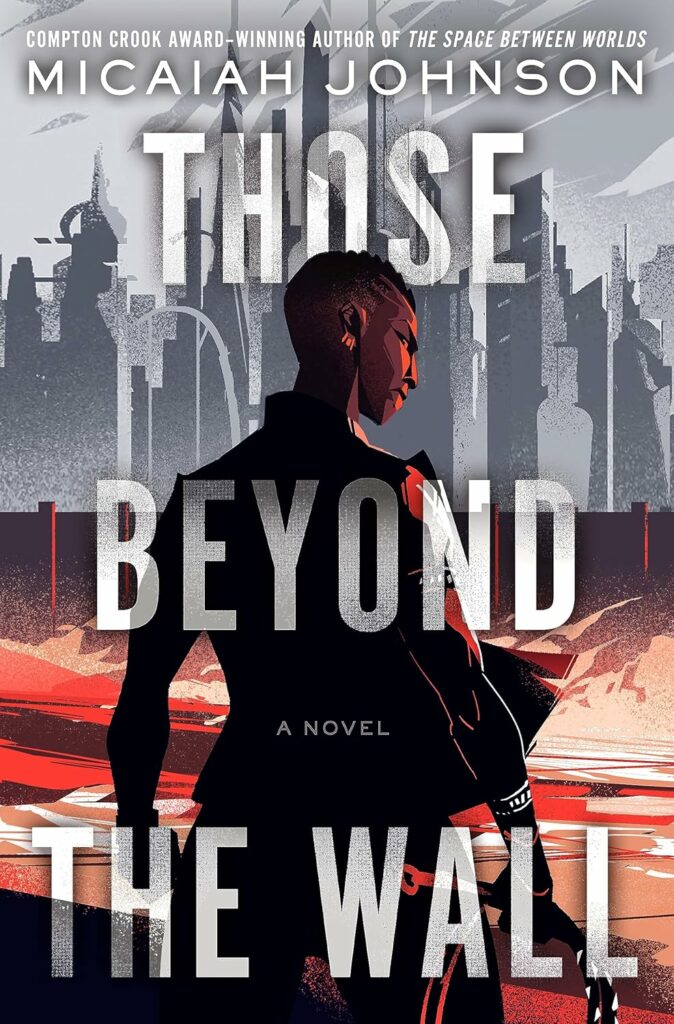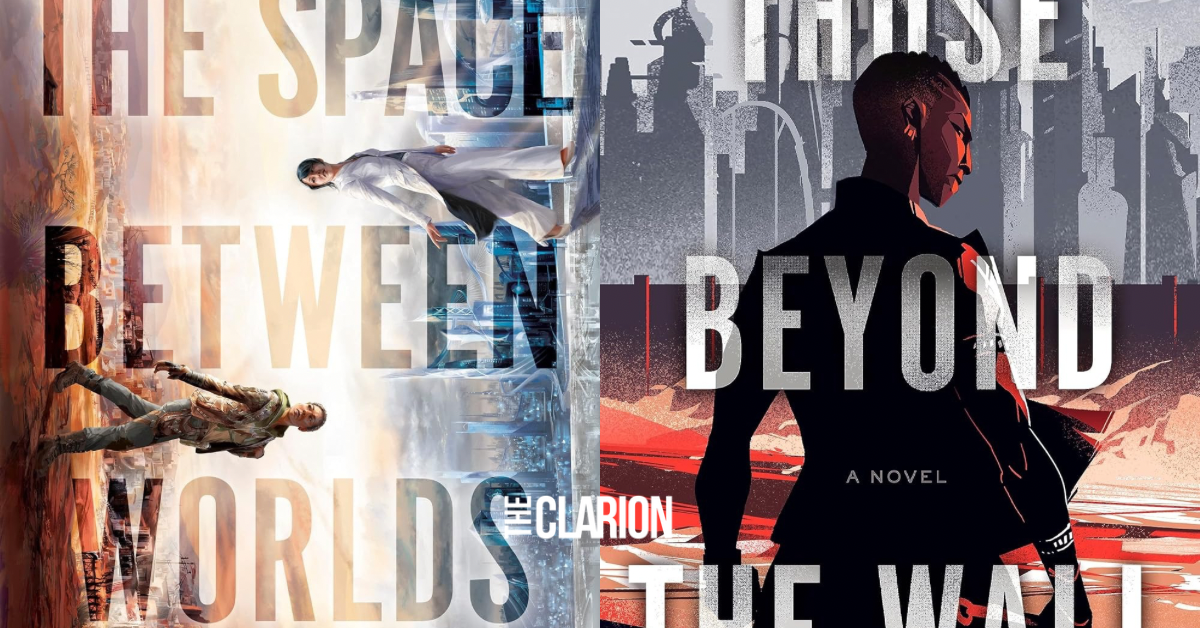From the outside looking in Micaiah Johnson might seem like a diamond in the rough. After all, how many best-selling authors represent the High Desert community she calls home as proudly as she does? But unlike the diamonds we are used to the California-native earned her award-winning status through her own merit. She represents a wave of writers transforming bookshelves in America and beyond after years of polishing their craft.
Where once, like many of us, success was a dream Johnson’s debut changed all that. “The Space Between Worlds” set a powerful foundation she is building on with her sophomore novel “Those Beyond The Wall”. For many fans of the genre, her success and what she represents, have been a longtime coming.
“It feels amazing but bear in mind I’m not even the first wave of this, I get to stand in places that N.K. Jemisin, and so many others carved out with difficulty. What we’re seeing is that those of us were kept out immediately had the mentality of sharpening their skills. We’ve just been working and reading to make our craft so tight that now that we’re being let in, we’re really bringing it,” she told The Clarion.

And bring it she certainly has. To date, she’s been nominated for the Best Astounding New Writer Award at the 2021 and 2022 Hugo Awards. Her debut would be a finalist for the Locus Award for “Best First Novel” and win the Compton Crook Book Award in 2021.
“It was very wild,” she said about “The Space Between Worlds” reception. “I was just hoping to maybe sell 5,000 books, maybe get a second print run. Then COVID happened and I thought no one would read it because there was just so much going on in the world but then it ended up having a much larger reach than I anticipated.”
Things have only grown from there. But where some might be overwhelmed by the pressure of writing a follow-up to such a beloved novel, Johnson’s met the challenge head-on. She already has years of experience defying the odds.
“I think we tend to have this picture of who is or who isn’t allowed to be a writer. On my Mom’s side I’m a first generation high-school graduate. Not only should I not be a writer I certainly should not be a PHD. Like many of us, I’m a statistical anomaly,” said Johnson.
Since she was a child, Johnson knew she wanted to be a writer. In the high deserts of California where she comes from, factory and warehouse work was the norm. A scholarship to study Creative Writing at UC Riverside would help her defy the odds stacked against her.
“When I was a teenager , I went to this yard sale and they had a book there. It was ‘How to make Money as a Novelist’ by Donald J. Maas. It was one of those magic beans or cows situations. I had so little money. But I told myself I was investing in my dream. I don’t know if anything came out of reading that book but 10 years later I’m signed with Karen McClure who was at Donald J. Mass’s agency,” Johnson said.
“It means the world to me and I think that’s what makes so many of us attracted to science fiction and fantasy: their infinite possibilities.”
– Micaiah Johnson
Throughout this process her upbringing in the desert outside of Barstow would serve as a source of inspiration. In fact, the high desert continues to a polestar in the author’s life.
“The desert is unignorable so you don’t have to learn to pay attention to a setting the same way you do if you’re in an area that doesn’t have droughts, earthquakes, or water that catches fire sometimes. But it also makes community not easy but inevitable. It’s part of survival, poverty and living in an extreme place. It makes it much easier to imagine a world where we depend on one another because you already have to exist in that kind of environment.”
Where she described The Space Between Worlds as a passing narrative, Johnson believed it was vital her next work take a different approach.
“And so with the second book I wanted to root it in the desert, in community, and have a character that is deeply connected to her culture and community and has no desire to go to the city, no desire to ascend if ascend means shunning what she is.”
Work on her sophomore effort would face a different challenge. Johnson wrote her first book for fun and without the expectation it would be published. Its smash success brought an on-spec contract, an editor, and legions of fans hungry for more.
“I’m a great underdog, I do great when people underestimate me, I so rarely in my life am in the position where people have high standards for me that I’m just like ‘I don’t like that, I don’t like it at all’. It was a bit harder to get out of my head and discover the writing process outside of the chaos and the noise of reception and public,” said Johnson.
Caring for her readers is of the utmost importance to the author. As a writer, Johnson strives to be a safe place for the communities she so proudly represents.

“I want them to feel seen and cared for and don’t want to do any harm. Until it first came out I was worried about how they were receiving it, I was very tense. But thankfully it started coming out and people were resonating with it, they feel seen. Now those are the kinds of five-star reviews that make all the one star ones go away.”
On and off the page the award-winning writer continues to fight for the causes closest to her heart. That includes working with up-and-coming writers on keeping their voice, writing query letters, and breaking in to the industry. As she explains, the elevator has to be sent back down.
Just a decade or so ago the idea of so many new, inspiring voices duking it out on the best-seller list seemed far-fetched. But as tastes, readership, and times have changed so has the genre for the better.
“I think what we’re seeing is that people that have spent so long honing their skills, having to work twice as hard to just get in the room, and so we are in this golden age,” Johnson said.
For writers like Johnson that means a chance to stand shoulder to shoulder with some of the greatest literary minds of recent years. It means a chance to create daring narratives and fulfill sci-fi’s potential as a vector of the possible.
“It means the world to me and I think that’s what makes so many of us attracted to science fiction and fantasy: their infinite possibilities,” said Johnson.
As she explained, both give readers room to imagine more promising and hopeful lives. It is one of many things that has made them a natural magnet for people of color.
Johnson said, “One of the things I say in that letter that opens up my book is that protest is born from a belief in a different possible future and science fiction is too. It becomes this site of possibility and if Philip K. Dick can predict the fax machine among other technologies, then we can possibly predict less exploitative futures that we can one day see fulfilled.”
In the words of Johnson, Samuel Delaney walked so that the writers that came after him would run. Thanks to her and the many other authors creating stunning works of art, sci-fi and fantasy are sprinting ahead. Lovers of the written word and well-crafted tales can experience the current golden age for themselves by picking up “Those Beyond The Wall” from their favorite bookstore.
(Featured image photo credit to Del Ray)
Written by Ismael David Mujahid, Executive Editor

